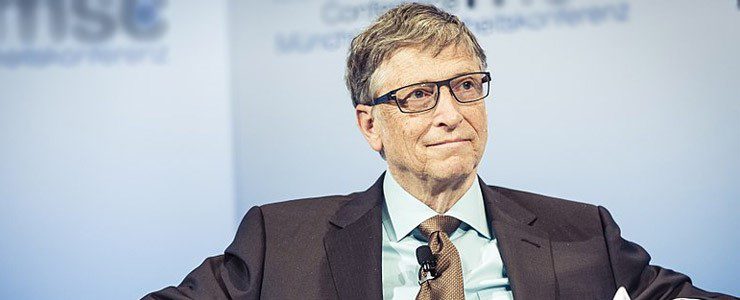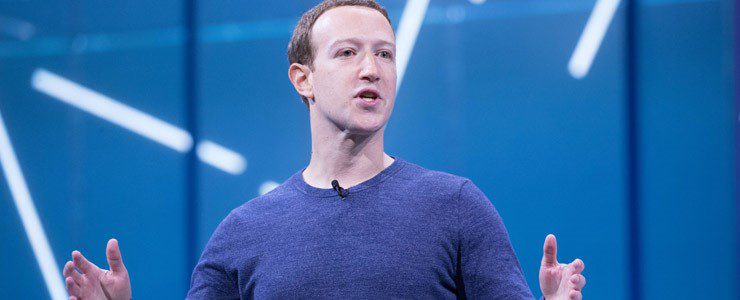
Bill Gates: My Entrepreneur Advice
Microsoft has been a global leader in the field of computing and technology development for four decades. Boasting revenue of $110.36 billion in 2018, it is the world’s largest software house.
It develops, manufactures and sells computer software, personal computers and consumer electronics, with its best-known software products being the Microsoft Office suite, Microsoft Windows and the Internet Explorer web browser.
It also produces Xbox gaming consoles, cloud computing via Azure and digital services through MSN. Based in Redmond, Washington, the company’s total assets were valued at $258.84 billion in 2018.
Microsoft has made a number of major acquisitions in recent years, including Skype Technologies for $8.5 billion in 2011 and LinkedIn for $26.2 billion in 2016.
Company founder Bill Gates was named as the second-richest person in the world, with a net worth of $96.6 billion, as of February 2019. He is surpassed only by Amazon founder and CEO Jeff Bezos.
So, how did the schoolboy from Seattle carve out a niche as one of the greatest entrepreneurs in the notoriously challenging field of technology?
Early years
Gates, now aged 63, attended Lakeside School, Seattle, in the 1960s. He and childhood friend, Paul Allen, developed a passion for computers. Technology was in its infancy and it was long before the days when consumers had a desktop computer in their own home.
When asked for advice on becoming an entrepreneur, Gates famously says “start early”. He was just 13 when he and Allen, aged 15, would spend hours in the school’s computer room. Their shared love of technology made them lifelong friends and they soon developed expertise.
In the early 1970s, they were allowed unlimited time on the school’s computer, on condition that they worked to improve its performance. They went on to launch a small company, Traf-O-Data, working from school. After designing and building a computer to monitor traffic, they sold it to the Seattle local authority, showing great entrepreneurial skills.
Speaking of his early business venture, Gates said starting something early in life means you can mould yourself around it. This gives you the opportunity of success sooner and it also makes you less likely to give up.
Microsoft launch
Gates went to Harvard University in 1973. Just like at school, he spent most of his time in the computer centre. Allen, who had moved to Boston, asked Gates if he wanted to work with him full-time on computer projects.
Gates made the momentous decision to drop out of Harvard and entered into a partnership with Allen to work full time on computer projects. Gates believes that when you have a dream to work towards in your youth, you become immune when people try to tell you what you can or can’t do.
Subsequently, as an adult, you become stubborn enough to ignore anyone who says you can’t do something. Dropping out of Harvard turned out to be a good decision, as Gates and Allen founded Microsoft in 1975.
They felt inspired after reading an article about the new microcomputer, the Altair 8800, in Popular Electronics magazine. Gates believed in forming partnerships with people, as it unlocked new opportunities by collaborating with other entrepreneurs.
Initially, Gates and Allen wrote a program for the inventors of the Altair, Micro Instrumentation and Telemetry Systems, in just eight weeks. The product was distributed and marketed as Altair Basic. In turn, this inspired Allen and Gates to launch their own company, Microsoft, on 4th April 1975.
A dispute between Gates and Allen in 1983 saw Allen leave Microsoft, but he remained on the board until 2000. Sadly, he lost his third battle with non-Hodgkin’s lymphoma in October 2018.
Windows and Office
Gates’ advice to other would-be entrepreneurs is to be your own boss as soon as possible. As he became a boss at a fairly young age, he was in an excellent position to control his own success. He famously said, “If you don’t build your dream, someone else will hire you to build theirs.”
However, he also warns that you won’t earn $60,000 a year when you’re straight out of high school. It was November 1985 when he and Allen released the first version of Microsoft Windows, called Microsoft Excel.
The ground-breaking technology was the start of the revolution that shaped today’s digital workplace. In 1986, Microsoft rolled out Microsoft Works – an integrated program that combined a database, spreadsheet and other office applications.
Gates’ attitude is to remain committed to what you love and passionate about what you do. He said the world’s most successful people absolutely love their work. He said if you were feeling stressed and found your work too hard, then it might not be the right field for you.
Digital revolution
Gates announced Microsoft Office in August 1988 at Comdex, a computer technology conference in Las Vegas. Bundling together Microsoft Word, Microsoft PowerPoint and Microsoft Excel for the first time, it was released on 19th November 1990.
Over the next three decades, the Microsoft technology advanced quickly, spurring the digital transformation that has revolutionised the way we work and the way we live our lives.
Gates has always lived by his own advice – and for people leaving school and college, who are thinking of launching their own business, he has some important tips. He says if you mess up, it’s not your parents’ fault, so don’t “whine” about your mistakes. Learn from them!
As someone who dropped out of Harvard, Gates says life is the best school, rather than university or college. He says reading books and taking tests is no substitute for life in the real world.
Technology is a difficult industry to get involved in, but Gates managed to stand out, thanks to his drive and ambition. Starting his business from school was just the beginning, and a sign of things to come.
Since leaving Microsoft’s day-to-day operations, Gates has been working on other projects and is increasingly involved in philanthropy. He has launched his own charitable trust, the Bill and Melinda Gates Foundation, and is committed to the “Giving Pledge”, which means he will donate at least half of his wealth to charity over time.
Headspace provides flexible workspaces for the creative, media and technology sectors – your dream can start to become a reality, right here, with us!
To find out more about our vibrant private office suites and coworking spaces, give us a call on 0800 953 0585 – or book a tour at one of our regional locations.
Image credit: © MSC / Kuhlmann / CC BY 3.0 DE



